.webp?width=200&height=75&name=blue-ridge-heating-air%20(1).webp)






Google is the new Yellow Pages … and encyclopedia … and friend that knows a whole bunch about a topic they’re not very familiar with.
 People search for everything online, from products they want to answers they need. And, when you’ve got the services and information they’re looking for, you want to make sure you’re one of the first websites they see when they search for those things.
People search for everything online, from products they want to answers they need. And, when you’ve got the services and information they’re looking for, you want to make sure you’re one of the first websites they see when they search for those things.
But, how do you make that happen?
The answer starts with keyword research and strategy.
The research part means zeroing in on the words and phrases that potential customers use when they search for products and services like yours.
Then, you get those words and phrases onto your website to make sure people find your information when they search for them.
That’s creating content -- landing pages and blog posts -- around those words.
In this post, we’re looking at keyword research and strategy for HVAC companies.
First things first — and this is something that trips up a lot of contractors: Don’t use your words.
Instead, use the words and phrases your customers use.
Google is better at understanding inferring meaning.
In other words, you don’t always need the letter-for-letter phrase a searcher types into the search bar in your content.
Usually, if you get close, they’ll find you.
But, Google doesn’t fix heaters all day. So, if you use a word or phrase that’s totally different than what the layman uses to search for the same thing, you won’t connect.
That doesn’t mean you have to dumb things down, or not use proper terminology on your site. Instead, focus content around words your customers type into Google when they search for a business like yours.
Sometimes, you’re talking the same language. Other times, you’re not. So, it’s essential to find out.
This is where keyword research begins.
The answer varies widely. Keyword research for an HVAC company can take as little or as long as you like. It’s anywhere from a few hours to an entire 40-hour work week.
Of course, the more time you put into it, the better information you have. But, eventually, it’s overkill — especially if it’s not your area of expertise.
It also depends on your resources. If you’re devoting an hour or two a week to SEO, don’t choose a few dozen keywords to go after. Instead, consider just one or two for each product or service you offer.
And, remember what you’re trying to do: Determine the best phrases your website should target.
Those phrases are the keywords your potential customers search on Google. Then, you narrow it down to determine which keywords generate a combination of the most, and the best, searches.
We’ll get more into how to make those determinations later. But, the point is to avoid going too far down the rabbit hole.
There are plenty of online tools you can use for keyword research. But, you have a few great resources already: Your staff.
You want to know the exact words and phrases your clients use when they ask questions.That way you can create content that answers them directly.
To find that out, ask your receptionists and your sales staff. Remember, these are the people who speak directly to your clients all the time. And, they’re asking those questions.
The first step is recording your inbound phone calls. Listen to exactly what people are asking. Look patterns, and if the same few questions keep popping up.
That’s a big clue that you should answer those questions on your website — using the words your customers use.
Next, talk to your sales team. Odds are, they hear another different set of questions.
That’s because the people they’re talking to have moved down the sales funnel. People calling in for the first time either have a specific problem with their system. Or, they only know they need something new.
By the time your sales team talks to them, they’ve got a little more information. So, they’re asking more informed questions.
Those queries make useful keywords. If people are asking your sales team these questions, then they and others are Googling them, too.
Now that you’ve got a list of questions, you want to find variations on them. This way, you’ll end up with a few huge lists that you’ll whittle back down to a handful of words and phrases.
You should notice some important words and phrases in the questions and comments you got from your employees. Now, you’ll use Google tools to find related words and then decide which to target.
You can also use research tools from SEO companies such as Moz, AHREFS, and SEM Rush. But, those cost money and take a little time to get used to.
It’s worth it if you want to make the time and financial investment. If not, here are some excellent places to start.
You can find out what people are searching for using the tool they use to search for them.
Type in your key phrase in the search bar, but don’t hit enter. Instead, tap the spacebar once, and wait for the suggestions to come up.
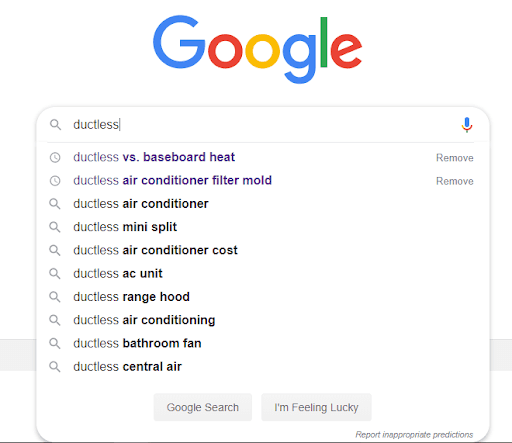
Every line that pops up is something that people search often. That’s why Google is suggesting it to you. Those phrases are worth keeping.
The next step is typing your keyword and the letter “a.” Then you’ll get another set of variations. Write those down, and work your way through the alphabet.
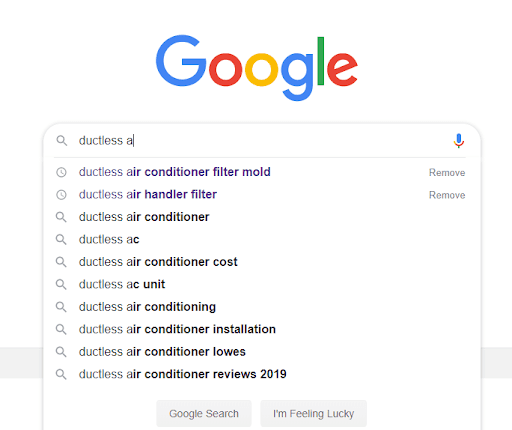
Now you have a good view of what Google says people look for when they search for topics related to your keywords.
Now, you should have dozens more words than you need. Your next step is whittling down each of those lists to one or two keywords that you’ll target.
But, how do you decide? Google Trends can help.
Trends is a free tool that helps you measure search volume — how many times people look up a specific phrase every month.
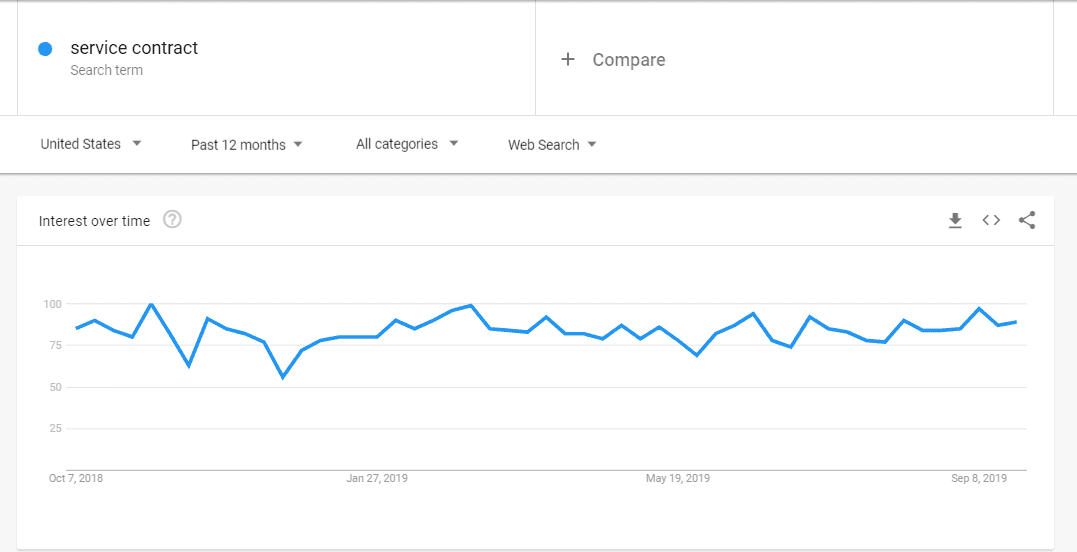
Type a word or phrase in, and it will spit back the number of monthly searches. You can even drill down to searches in your county versus statewide or across the country.
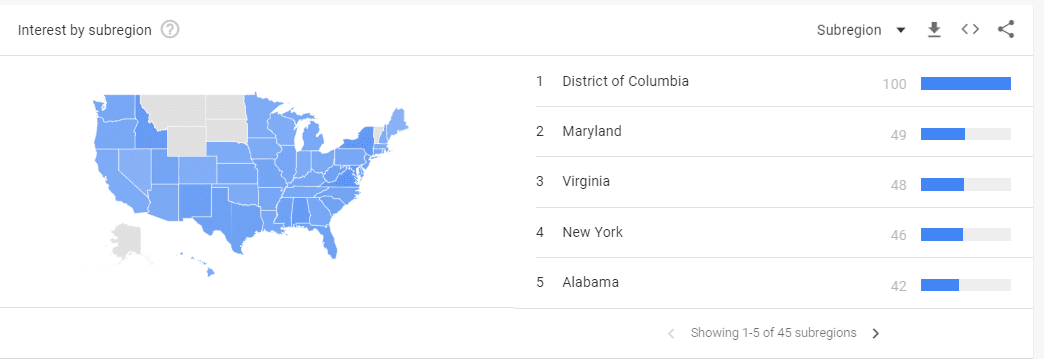
And, you can compare two or more keywords at once. This feature is useful if you’re not sure which one to target, or if there’s a question about the terms people in your area use over another.
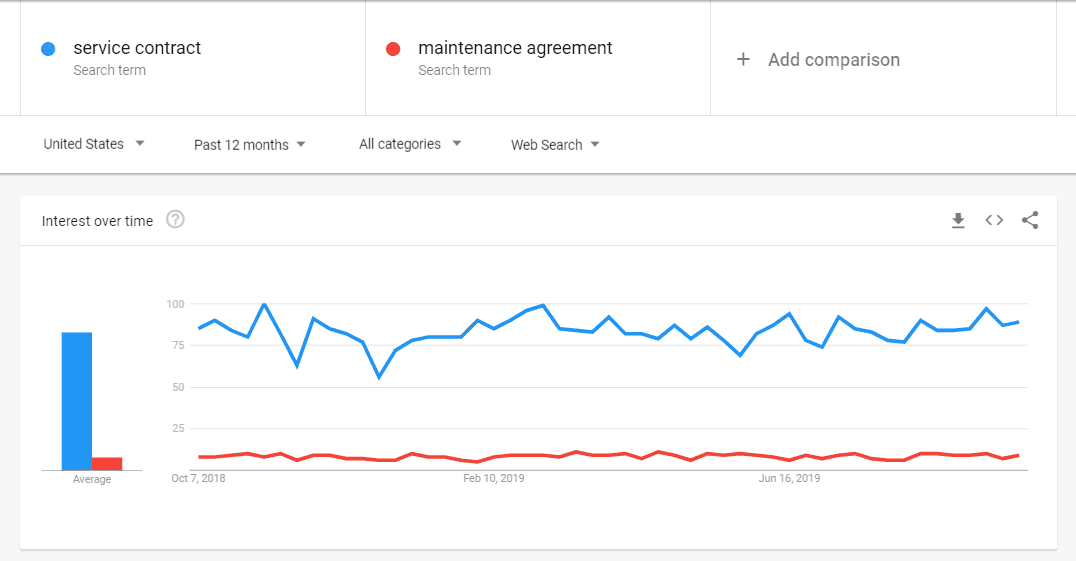
Now that you’ve got your lists, it’s time to whittle it down to just one or two for each part of your business you want to promote.
Choosing them isn’t easy. There’s no one right way to do it. Your expertise in the industry will go a long way toward knowing what people want. Google fills in the blanks for you.
Using Google Trends, you can tell which specific words and phrases people search for the most. Strike off some of the ones with smaller traffic.
Next, search each item on your shortlist yourself. You want to look for results that you’re likely to rank for.
If there’s a bunch of paid ads at the top, for instance, even the first organic search result will be pretty far down the first page.
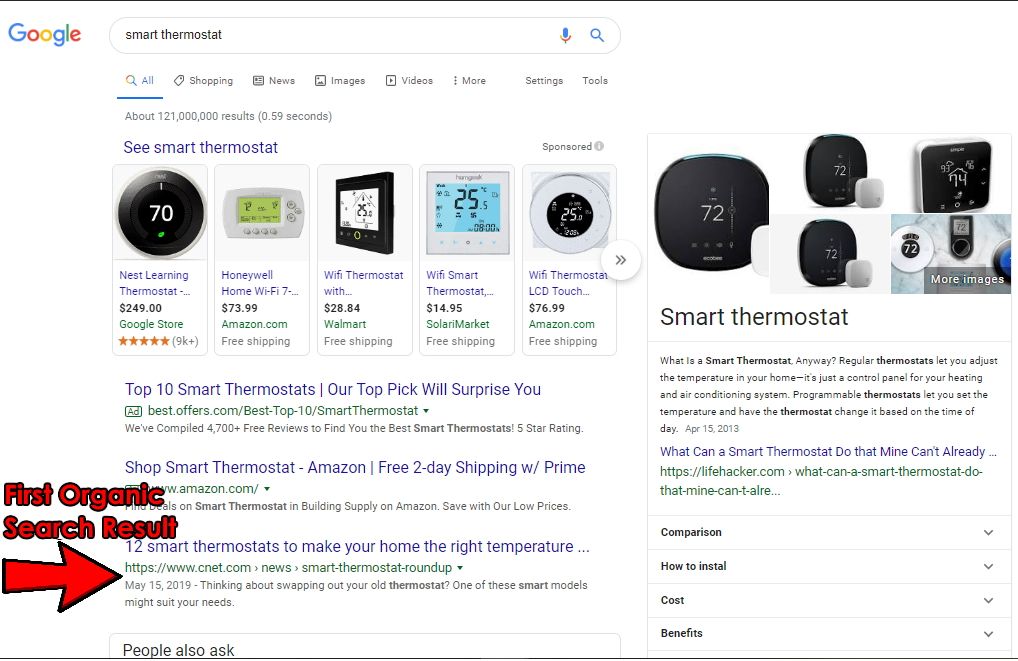
Or, if you notice that all the organic results are huge websites like Home Depot or Angie’s List, odds are you don’t have the SEO firepower on your own to blow past them.
Instead, look for the ones where other companies like yours are ranking with their landing pages or blog posts. And, there aren’t a lot of extra features like ads or images in the results.
Those are the ones you want to focus on.
Now that you’ve got your keywords, it’s time to build content around them. You want Google to think you’re an authority on whatever topic you’re trying to rank for.
It’s challenging without a full-time marketing employee or a company like Comfort Media dedicated to this for you. But, you can take some steps to make your site an authority on HVAC topics.
That starts with your content.
Make sure you have a landing page for each keyword. Include it in the URL, title tag and H1 tags, and a few times throughout the page. Then, cook up a few blog post ideas centered around each keyword.
Now, you’ve got a topic cluster.
Publish the landing pages. Then, publish a blog each week using the keywords in the same ways.
Be sure to include hyperlinks from all the pages in each cluster to the other pages in the same group. That internal networking makes the site look better to Google.
Of course, there’s a lot more that goes into optimizing your page. But, this is an excellent place to get started. When you notice an increase in traffic after three months, you’re on the right track.
If you have any more questions, give Comfort Media a quick call. There’s a lot that goes into keyword research and strategy. And, it’s just one small part of your overall SEO strategy and marketing campaign. Fortunately, it’s what we do all day. And we’re happy to do it for you.

About the Jack Firneno:
.webp?width=200&height=75&name=blue-ridge-heating-air%20(1).webp)





